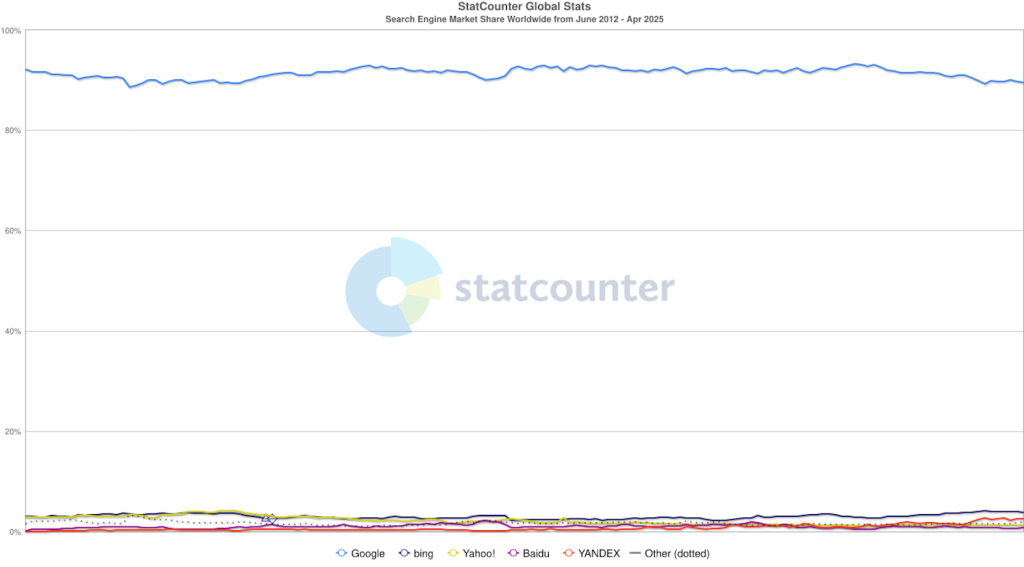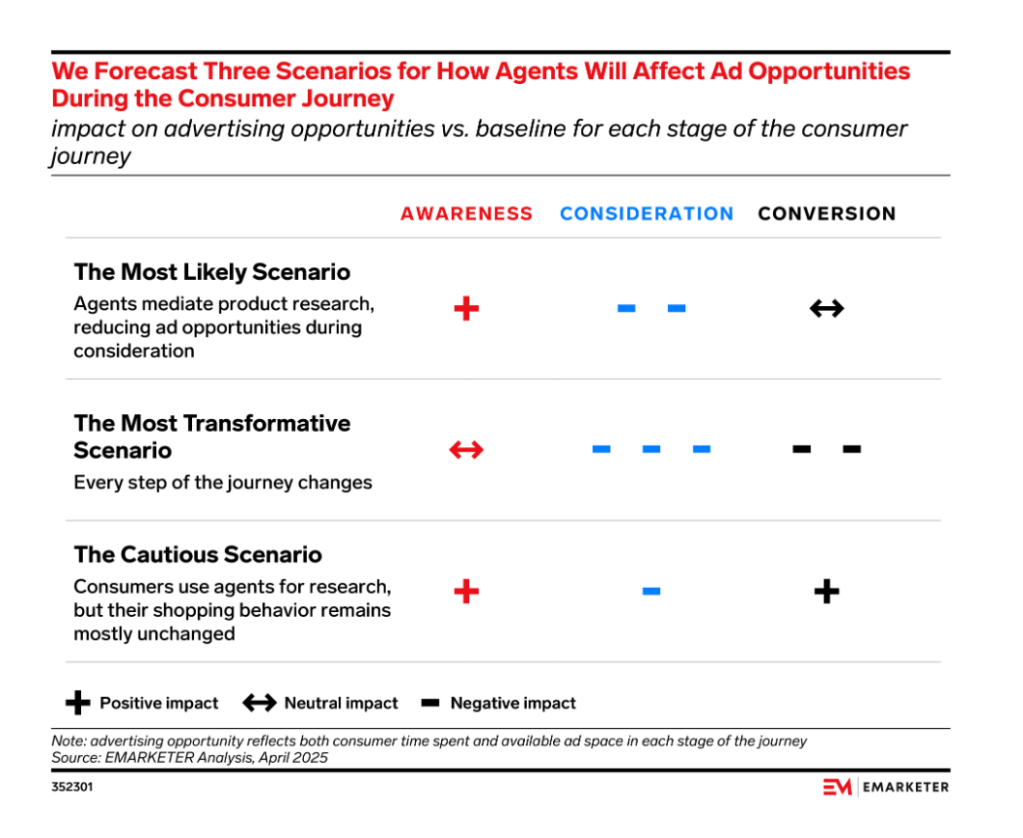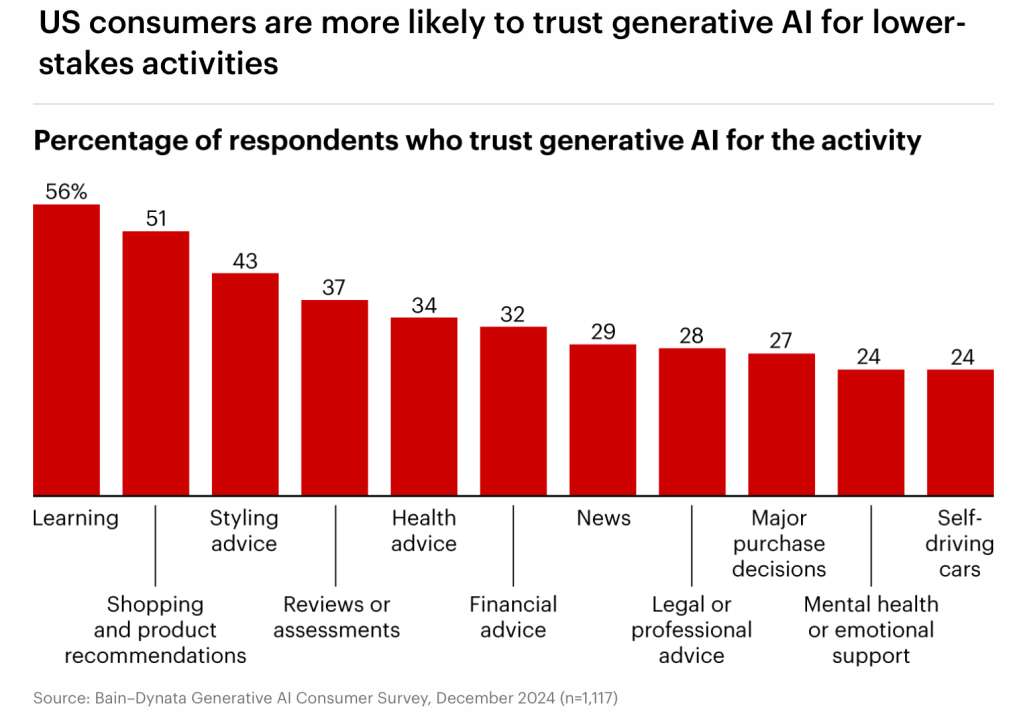Secure your place at the Digiday Media Buying Summit in Nashville, March 2-4

AI agents are no longer just experimental tools — they’re rapidly becoming indispensable intermediaries in how people search, shop, and interact online. As platforms like Google, OpenAI, and Perplexity race to roll out agentic AI, the advertising industry is bracing for a shift that could redefine consumer journeys and reshape digital marketing strategies.
Despite all the hype, many marketer’s generative AI investments are still modest or even nonexistent. One Gartner survey of more than 400 marketing leaders found that 27% of CMOs reported their teams had little or no adoption of generative AI. However, it’s still early — both in terms of impact and in terms of preparations. And with the search landscape ever-evolving, Gartner analyst Noam Dorros marketers could risk creating a “massive headache” for themselves by trying to chase what the future might look like.
“You still have to focus on what’s three feet in front of you, which is your consumer, and understand their behaviors and their needs,” Dorros said. “… If you are foundationally sound when this changes again, you’ll give yourself a better launch pad to pivot and adjust accordingly.”
AI is changing the way people access information online
AI is reshaping how people access information online, gradually shifting behavior away from traditional search engines. According to StatCounter data, Google’s global market share in April fell to 89.65% — the lowest since 2013 when it dropped to 89.41%. Meanwhile, U.S. market share the same month was 86.71%, with Bing in second place with 7.5%, Yahoo in third with 2.86% and DuckDuckGo in fourth with 2.3%.

While traditional search sees some change, companies are also growing their use of AI search platforms. Google’s own AI Overviews feature now brings 1.5 billion monthly users, according to the company’s most recent earnings. Leading AI search startups are also seeing growth, albeit smaller. Last year, Perplexity’s total monthly searches grew from 2.5 million in January to 20 million by December. A March study from Semrush estimated ChatGPT was processing around 37.5 million search-like queries a day.
Search habits and AI agents could limit ad opportunities
As the way people search shifts, AI search platforms and agents will likely limit ad opportunities during the consumer journey’s consideration stage. Fewer interactions for pass-through ad-supported channels could pose a risk to search engines and marketplaces.
A recent eMarketer report estimated AI agents could cause a 38% drop in ad exposure during discovery, 47% during consideration, and 30% at conversion. That’s leading marketers to shift focus toward new ways to optimize AI content, product feeds, and direct integrations with AI agents instead of relying solely on paid ads. The most likely scenario, according to eMarketer, is that agents will mediate how consumers will research products, which could improve product awareness, hurt consideration and leave conversions neutral. On the other hand, the “most transformative” scenario is that everything will change, leaving awareness neutral, but greatly hurting product consideration and conversion.

Companies like Microsoft are also trying to set the stage with new ad formats within chat-based platforms. In March, it rolled out a suite of new AI-powered ad innovations aimed at transforming digital ads through its Copilot platform while boosting ad relevance and performance. Early testers are brands in categories like retail, gaming, travel, financial services, and automotive.
In a separate report about machine-to-machine (M2M) marketing, eMarketer found that 66% of U.S. consumers surveyed said they wouldn’t allow AI to make purchases on their behalf — but a majority say they’d let AI agents help them secure high-demand products, buy times at a target price point and monitor products for maintenance.
Powerful AI agents are on the horizon
AI agents are poised to transform the digital landscape, shifting from narrow chatbot systems to powerful, self-directed tools capable of complex tasks — especially as they gain features like autonomous navigation browsing, shopping and other needs.
In the past few months, AI companies have piloted, previewed and premiered new agentic AI tools for how people browse and shop online. Among them are Google’s Mariner — which was revealed as a prototype in December — along with OpenAI’s Operator, Amazon’s Nova Act, and Perplexity’s Comet. (The latter is expected to launch this month.)
According to a recent report by Enders Analysis, deep research agents from OpenAI have already doubled their performance on the difficult “Humanity’s Last Exam” benchmark, raising success rates from 13% to 26.6% through web browsing and coding tools.
Move over ad tech, AI agents are the new intermediaries
AI agents are poised to become the new power brokers in marketing, reshaping the consumer journey and challenging traditional advertising models. According to a new Bain & Company report, around 80% of U.S. consumers already use AI-generated content for at least 40% of their searches. That could signal a sharp pivot in how people interact with brands online.
Trust in AI seems to vary based on the use case, according to Bain. The survey showed 56% of respondents trust AI for learning and 51% for shopping. However, trust drops sharply in sensitive areas—just 34% trust AI for health advice, 32% for financial guidance, and 29% for news, with even lower confidence in legal, major purchase, and mental health decisions.

While advertisers aren’t handing full budget control to AI, companies like Visa and Mastercard are moving ahead with letting AI agents make purchases for customers—Visa with its new “Intelligent Commerce” system and Mastercard with “Agent Pay.” ChatGPT and Shopify also recently announced a new in-chat shopping capabilities.
A blueprint for chatbots
A new report from Wharton offers advice for marketers on how to use AI chatbots to help personalize recommendations, build trust, and choose between human- or machine-like bots. The report, published last week, is derived from dozens of research papers in labs around the world and distilled into actionable advice for marketers that serves as a “blueprint” for businesses.
Insights show people were up to 2.6 times more likely to accept a higher- than-expected price when delivered by an AI vs. a human. People are also 11.2% less likely to interact with a human-like chatbot when purchasing embarrassing products, compared to a machine-like chatbot.
Marketing professor Stefano Puntoni and his co-authors also found that human-like bots can boost engagement, machine-like bots often handle complaints better, and ethical considerations should stay front and center. Subtle flattery can also be persuasive, especially from less humanlike bots. The research further finds that people prefer good news from humans but react similarly to rejections from either a person or chatbot—with neutral bots sometimes softening impersonal bad news.
“Flattery helps in chatbot context like it works in the real world,” Puntoni said. “Flattery is quite effective, but what we found is the problem with flattery is it works as long as people are not overly aware of the fact that it is flattering. The moment that they are in a sales situation and that flatter is obvious, then it becomes suspicious.”
More in Marketing

Future of Marketing Briefing: AI’s branding problem is why marketers keep it off the label
The reputational downside is clearer than the branding upside, which makes discretion the safer strategy.

While holdcos build ‘death stars of content,’ indie creative agencies take alternative routes
Indie agencies and the holding company sector were once bound together. The Super Bowl and WPP’s latest remodeling plans show they’re heading in different directions.

How Boll & Branch leverages AI for operational and creative tasks
Boll & Branch first and foremost uses AI to manage workflows across teams.







